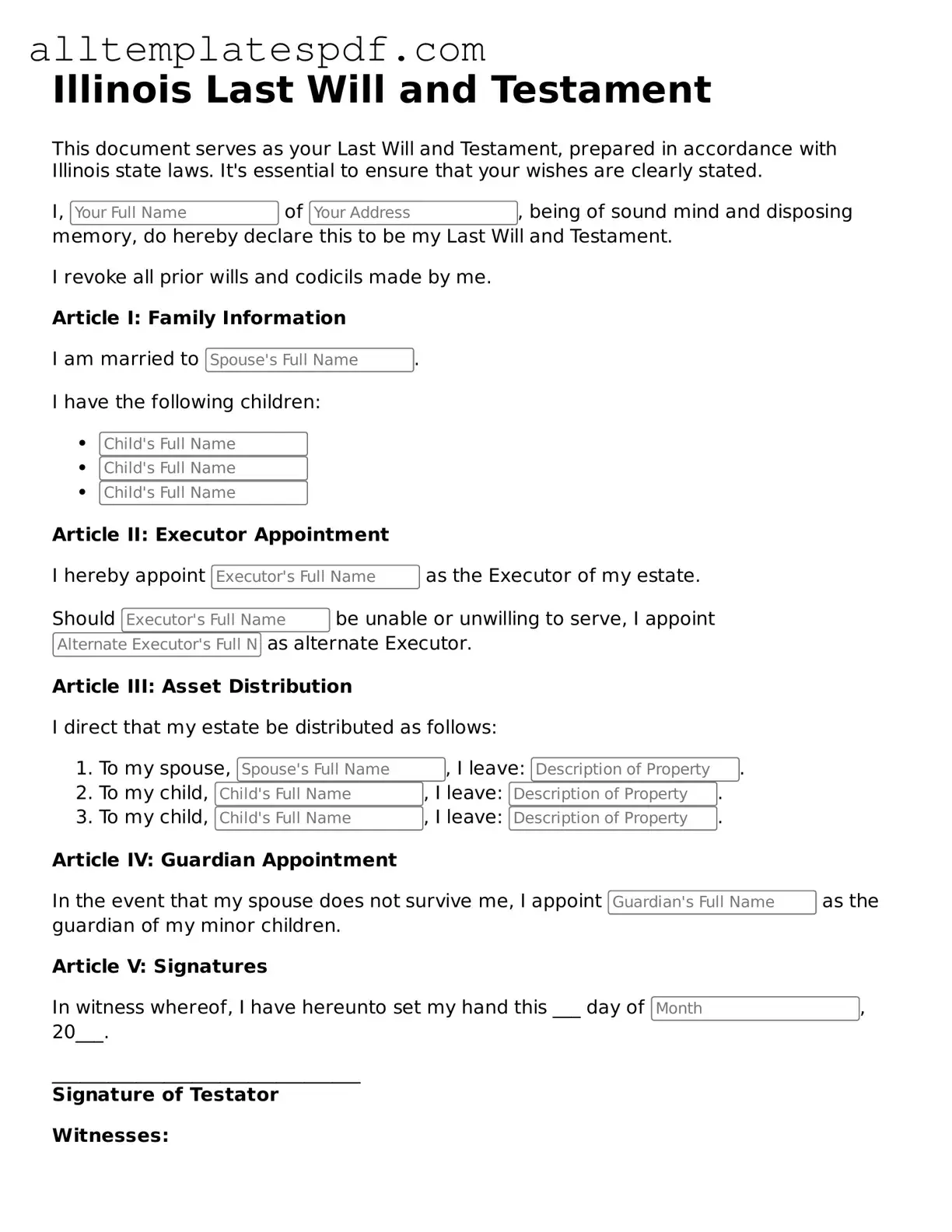Blank Last Will and Testament Template for the State of Illinois
A Last Will and Testament is a legal document that outlines how a person's assets and affairs should be handled after their passing. In Illinois, this form provides clear instructions on the distribution of property, appointment of guardians, and other important matters. Understanding this document is essential for ensuring that your wishes are honored, so consider filling out the form by clicking the button below.
Open Editor

Blank Last Will and Testament Template for the State of Illinois
Open Editor
Fast and easy form completion
Complete Last Will and Testament digitally — fast and easy.
Open Editor
or
↓ Last Will and Testament PDF Form
